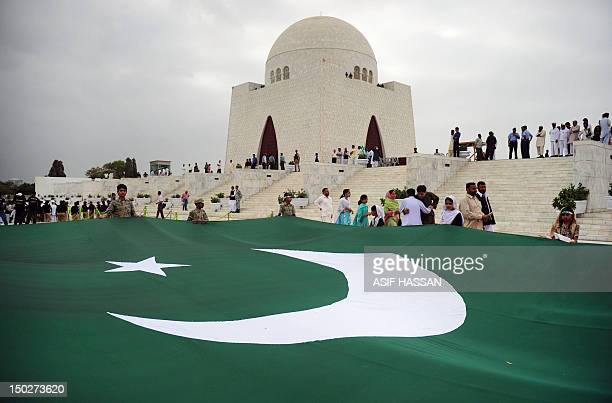Pakistan’s Independence Day: Muhammad Ali Jinnah’s Legacy on August 14,APNAQANOON
On August 14, Pakistan commemorates its Independence Day, marking the historic moment when the nation gained freedom from British colonial rule in 1947. At the forefront of this movement was Muhammad Ali Jinnah, a visionary leader and legal luminary who played a pivotal role in shaping Pakistan’s legal and constitutional foundations. This article pays tribute to Jinnah’s enduring legal legacy, highlighting his contributions to the establishment of Pakistan and his impact on the country’s legal system.
1. Architect of Pakistan’s Legal Framework
Muhammad Ali Jinnah, often referred to as the “Quaid-e-Azam” (Great Leader), was a lawyer by profession. His legal acumen and advocacy skills were instrumental in shaping the political and legal landscape that laid the groundwork for Pakistan’s establishment as an independent nation.
2. Advocacy for Constitutional Reforms:
Jinnah’s legal career began in British India, where he championed constitutional reforms and civil rights for the Indian population. His legal practice focused on advocating for justice, equality, and the rule of law.
3. Two-Nation Theory and Legal Discourse
Jinnah’s articulation of the “Two-Nation Theory” emphasized the distinct cultural and religious identities of Hindus and Muslims, leading to the demand for a separate Muslim-majority state. His legal arguments underscored the need for constitutional safeguards for religious and minority rights.
4. Legal Basis for Pakistan’s Creation:
Jinnah’s tireless efforts culminated in the creation of Pakistan, which was achieved through legal negotiations and political maneuvering. His legal expertise played a crucial role in negotiating the terms of partition and ensuring a smooth transition from colonial rule to an independent state.
5. Drafting the Objective Resolution:
As Pakistan’s first Governor-General, Jinnah presided over the drafting of the Objective Resolution in 1949. This document laid the foundation for Pakistan’s future constitution, emphasizing Islamic principles while ensuring the protection of minority rights.
6. Contribution to Constitutional Development:
Jinnah’s vision for Pakistan’s legal and constitutional framework was based on principles of democracy, equality, and social justice. His legacy continues to influence constitutional development and legal jurisprudence in Pakistan.
7. Legal and Political Leadership
Jinnah’s leadership extended beyond legal matters to encompass political and governance issues. His commitment to upholding the rule of law and creating a just society left an indelible mark on Pakistan’s legal and political institutions.
8. Role in International Diplomacy:
Jinnah’s legal background equipped him with the skills needed for international diplomacy. He effectively represented Pakistan’s interests on the global stage, contributing to the country’s recognition and sovereignty.
As Pakistan celebrates its Independence Day on August 14, the legacy of Muhammad Ali Jinnah stands as a testament to the profound impact of legal expertise on the course of history. His contributions to the establishment of Pakistan, his advocacy for constitutional rights, and his commitment to justice continue to resonate in the legal and political fabric of the nation. Jinnah’s vision and dedication serve as a reminder of the transformative power of law in shaping the destiny of a nation and the lives of its people.

